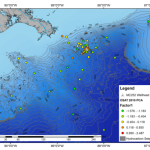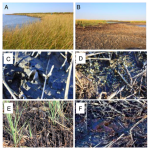Of course, anyone who bothered to look at a map would have known that St. Pete Beach — and hundreds of other vacation spots throughout the Sunshine State — would have pristine beachfronts through the summer, even under the worst of the worst-case scenarios.But Mr. Overton and others don’t blame tourists or the news media for failing to grasp basic geography and ocean currents. They blame BP, and they think the company should compensate them for money they would have earned but for the onset of black-crude hysteria.Are they right? Should companies like TradeWinds collect damages from an oil spill even if their beaches were never sullied? Put another way, should BP have to pay for economic hardship caused by the public’s reaction to the oil, even if that reaction was utterly irrational?
Open forum for your thoughts on this. Moreover, should scientists and research institutions from states not bordering Gulf of Mexico receive funds. Discuss…
via Should BP’s Money Go Where the Oil Didn’t? – NYTimes.com.






It was a bad summer for business, but so was last summer- and not just for the Gulf states. I think if you own a business in a county that didn’t see oil and wasn’t directly adjacent to a county that saw oil and you want to claim losses, the burden of proof should be extremely high. For hotels, fishing charters, etc. you should be required to provide numbers of cancellations due specifically to the spill, along with names that can be verified. Based on that documentation and previous years’ records they should be able to estimate how much business was lost due to the spill vs. the recession. For retail you should have to demonstrate a decline in sales this year that exceeds the national average by 10% or so and that you annual decline hasn’t been more than 5% above the national average in any of the previous 3 years.
As for a preference for research grants going to affected areas, I don’t see why that should be the case except to fund pre-existing monitoring projects. Everyone else should go into a hat and be chosen using the standard merit-based review. If scientists from the Gulf Coast have more relevant backgrounds or can do their projects more cost-effectively than scientists elsewhere, then naturally they should have an edge in the review process and don’t need any favored treatment. On the other hand, if they just happen to be closer to the spill by chance, why should the be considered before a scientist with a better proposal?
I think Mike G has this pretty much sewn up. I cannot think of a one good reason for getting parochial with science funding. Gulf labs should by their proximity to the incident be able to put together very strong scientific cases for investigations, and so will probably take the lion’s share of funding.
If a spill happened here, (Morecambe Bay, UK) we’d have a pretty thin local scientific base to call on and I wouldn’t want us to be unable to call on outside expertise (perhaps yours) because of some tit-for-tat shit…
I agree with Mike. I had a problem with BP giving Florida money for advertising the beaches in the Sunshine state were safe. That money could have and should have been spent on clean-up! There was too much publicity on Florida beaches, when it actuality the oil effected Pensacola beaches and a slight effect to the east to Panama City. Louisiana was the hardest hit, and should have been the main focus.